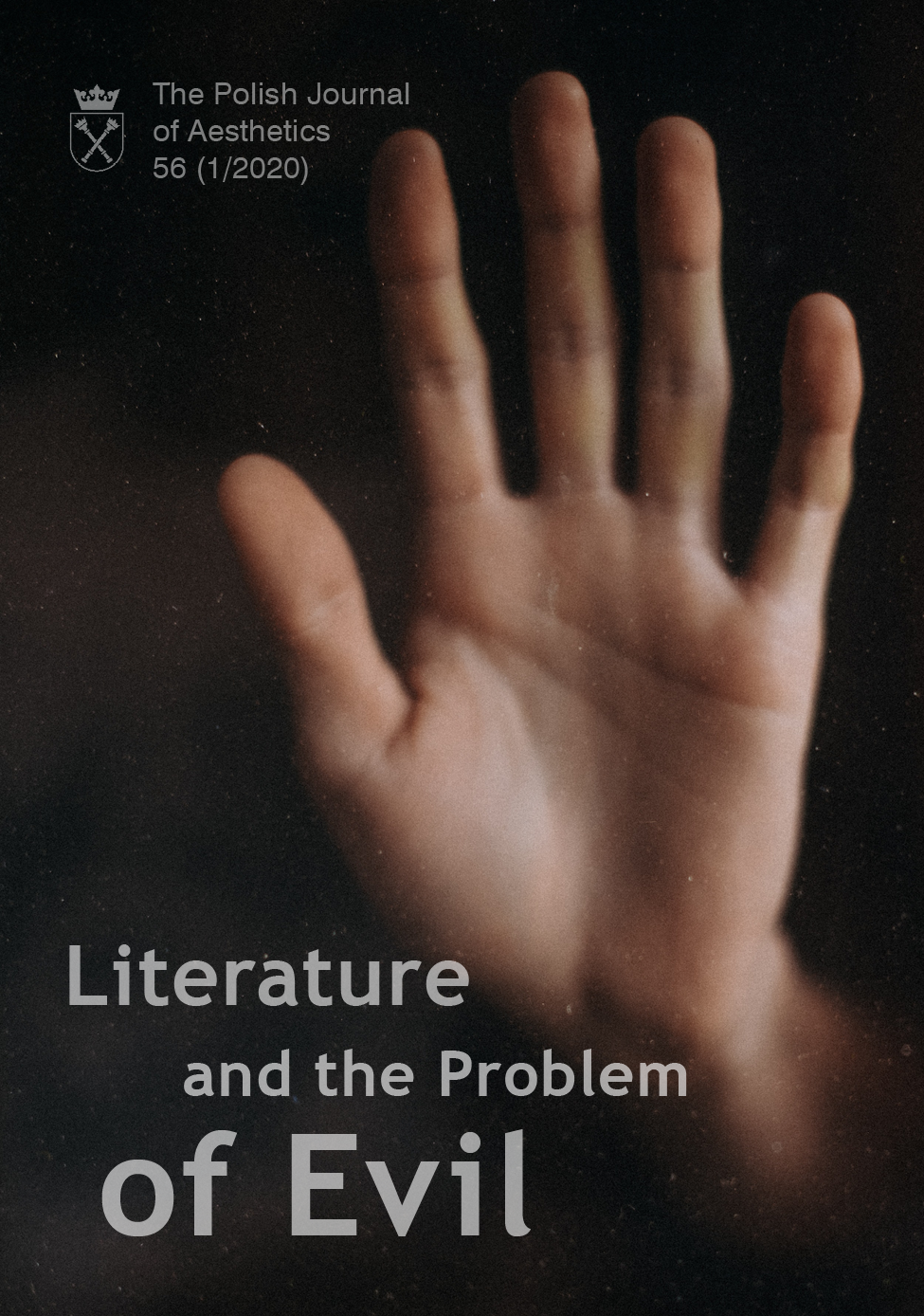Numer 56 (1/2020)
Literature and the Problem of Evil|
Spis treści
Strony
Pobierz
|
|||||
|
|
|||||
|
|
|||||
|
Michał Bizoń
Aesthetic Ethics without Evil. Aischron in Greek Popular Ethics
DOI: 10.19205/56.20.1
11 – 30
|
|||||
|
Słowa kluczowe Metaethics |evil |kalon |aischron |Popular MoralityStreszczenie In the paper I consider the Greek term aischron as a candidate for a moral concept of evil, focusing on popular rather than philosophical Greek ethical thought. I distinguish between a wide and a narrow concept of evil, focusing in the enquiry on the latter. A narrow concept of evil is limited to a moral meaning, referring to moral agents and actions. In this use evil represents the strongest negative evaluative term of moral agents and actions. I begin the analysis of aischron with a scrutiny of its positive counterpart, kalon. I synthetically discuss the ongoing discussion regarding its meanings. I then turn to the term aischron and its cognates and conclude that its meanings have a similar, albeit not identical, range to kalon. In both cases the semantic field of these terms include a functional, aesthetic, and ethical component. I further argue that these three components are interconnected which suggests that the various meanings of kalon and aischron are not homonymous. On this basis I argue that the functional and aesthetic components present fundamental difficulties for reading aischron as denoting moral evil. INFORMACJE O AUTORZE
Uniwersytet Jagielloński w Krakowie
|
|||||
|
|
|||||
|
Słowa kluczowe evil |Master and Margarita |Good |GodsendStreszczenie The countless interpretations of The Master and Margarita emphasize the most disturbing thought for the readers. This is an amazingly simple and moving truth: from the clutches of the Soviet Empire which destroys the Master only Satan can release him. The Master’s saviour is the spirit of evil. In this article I would like to show Bulgakov’s rich and ambiguous topography of evil, then to expand view of the topography of good. INFORMACJE O AUTORZE
Uniwersytet Jagielloński w Krakowie
|
|||||
|
Kimberly Young
Ivan Karamazov’s Euclidean Mind: the ‘Fact’ of Human Suffering and Evil
DOI: 10.19205/56.20.3
49 – 62
|
|||||
|
Słowa kluczowe evil |Dostoevsky |Suffering |Euclidean Reasoning |the CrucifixStreszczenie In The Brothers Karamazov, Fyodor Dostoevsky addresses the problem of how to reconcile God’s goodness with the evil in the world by comparing the metaphysical implications of Ivan Karamazov’s and the Elder Zosima’s Euclidean and non-Euclidean epistemologies. For Ivan, the moral opposites of good and evil cannot be reconciled, just as two parallel lines cannot meet (Euclid’s fifth postulate). For Zosima, the symbol of the crucifix represents a meeting of the parallel lines and the moral opposites. INFORMACJE O AUTORZE
La Trobe University, Melbourne, Australia
|
|||||
|
Virgil W. Brower
Hyde within the Boundaries of Mere Jekyll: Strange Cases of Evil in Kant & Stevenson
DOI: 10.19205/56.20.4
63 – 84
|
|||||
|
Słowa kluczowe Religion |hermeneutics |freedom |reason |moralityStreszczenie This essay experiments with Kant’s writings on rational religion distilled through the Strange Case of Dr Jekyll and Mr Hyde as canonical confrontations with primal problems of evil. It suggests boundaries between Stevenson’s characters and their occupations comparable to the those conflicted in the Kantian university, namely, law, medicine, theology, and philosophy (which makes a short anticipatory appearance in his earlier text on rational religion). With various faculties it investigates diffuse comprehensions—respectively, legal crime, biogenetic transmission, and original sin—of key ethical modes: will, inheritance, incorporation, freedom, duty, obligation, love, living, and killing to conclude on the possible logic of evil (or evils of logic) collateral and possibly innate to Kant’s comprehension of radical evil. INFORMACJE O AUTORZE
Uniwersytet Karola w Pradze, Czechy
|
|||||
|
Miłosz Puczydłowski
The Ontology of Evil and Its Anthropological Moment of Freedom in Pär Lagerkvist’s The Dwarf and Plotinus’ Enneads (I.VII-VIII)
DOI: 10.19205/56.20.5
85 – 99
|
|||||
|
Słowa kluczowe freedom |ontology |evil |Lagerkvist |PlotinusStreszczenie The aim of this paper is to provide a philosophical reading of a famous novel by Pär Lagerkvist entitled The Dwarf. The novel’s protagonist is to be found as the embodiment of evil. His diaries explore his own identity. Hence the paper shall employ the Dwarf's confessions to describe the ontology of evil. That will be then compared to the classical metaphysics of good and evil based on Plotinus’ Enneads. The ideas of evil’s homogenity, impenetrability, infertility and absurdity are studied. In the conclusion, the utmost importance of human freedom is indicated in these works of both Lagerkvist and Plotinus. INFORMACJE O AUTORZE
Uniwersytet Komisji Edukacji Narodowej w Krakowie
|
|||||
|
Maciej Michalski
Literature of Absence and the Experience of Evil (Container by Marek Bieńczyk, Is Not by Mariusz Szczygieł, and Things I Didn’t Throw Out by Marcin Wicha)
DOI: 10.19205/56.20.6
101 – 117
|
|||||
|
Słowa kluczowe evil |literature |Loss |Absence |Marek Bieńczyk |Mariusz Szczygieł |Marcin WichaStreszczenie The article discusses the way in which literature can address evil, understood as the experience of absence and loss. The problem concerns artistic writing in general, as was stressed by Maurice Blanchot; but it also appears particularly in a collection of texts about absence, such as Container by Marek Bieńczyk, Is Not by Mariusz Szczygieł, and Things I Didn’t Throw Out by Marcin Wicha. At the same time, they are an attempt to fill the void through literary restitution of that which is lost. INFORMACJE O AUTORZE
Uniwersytet Gdański
|
|||||
|
|
|||||

